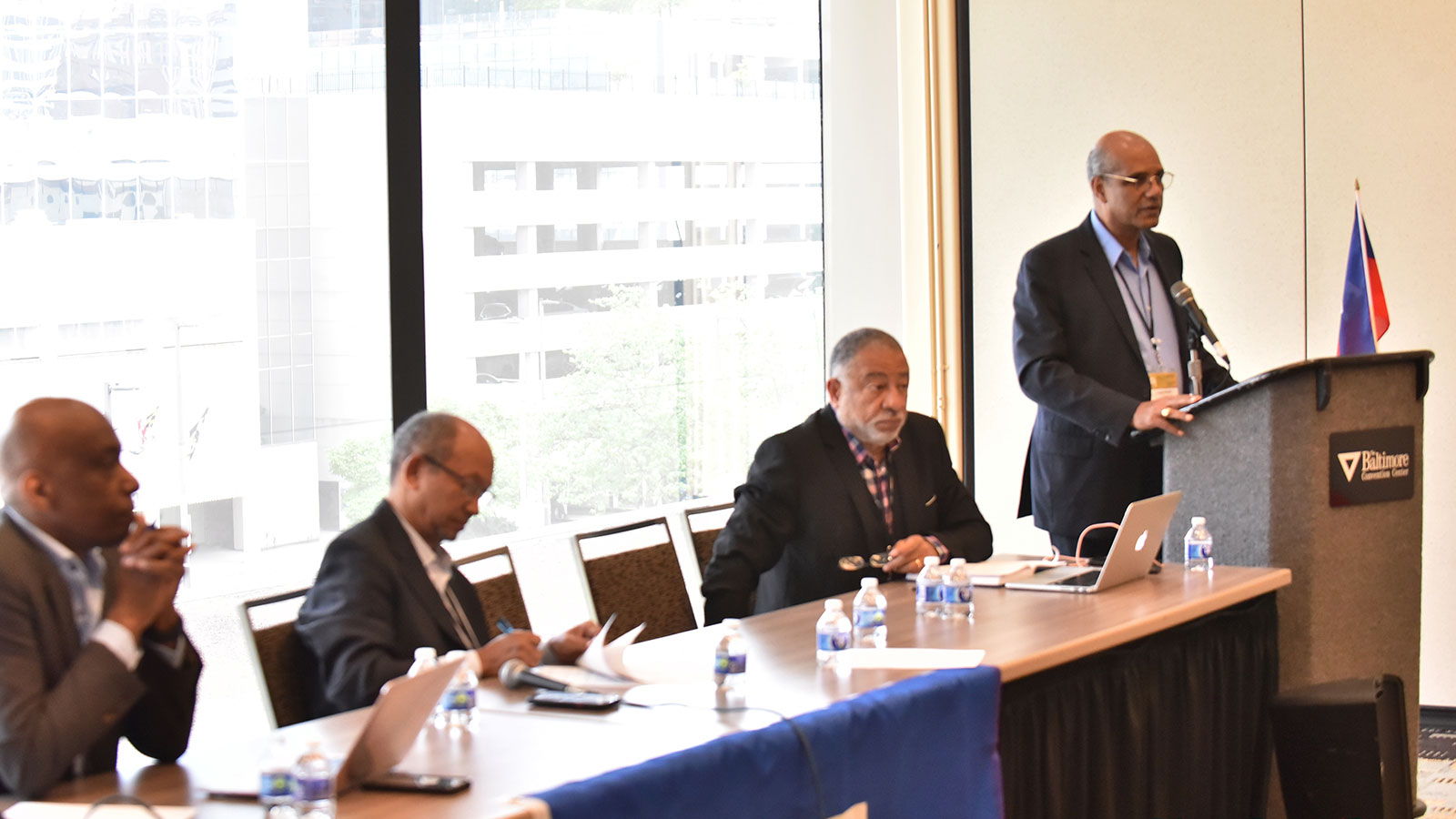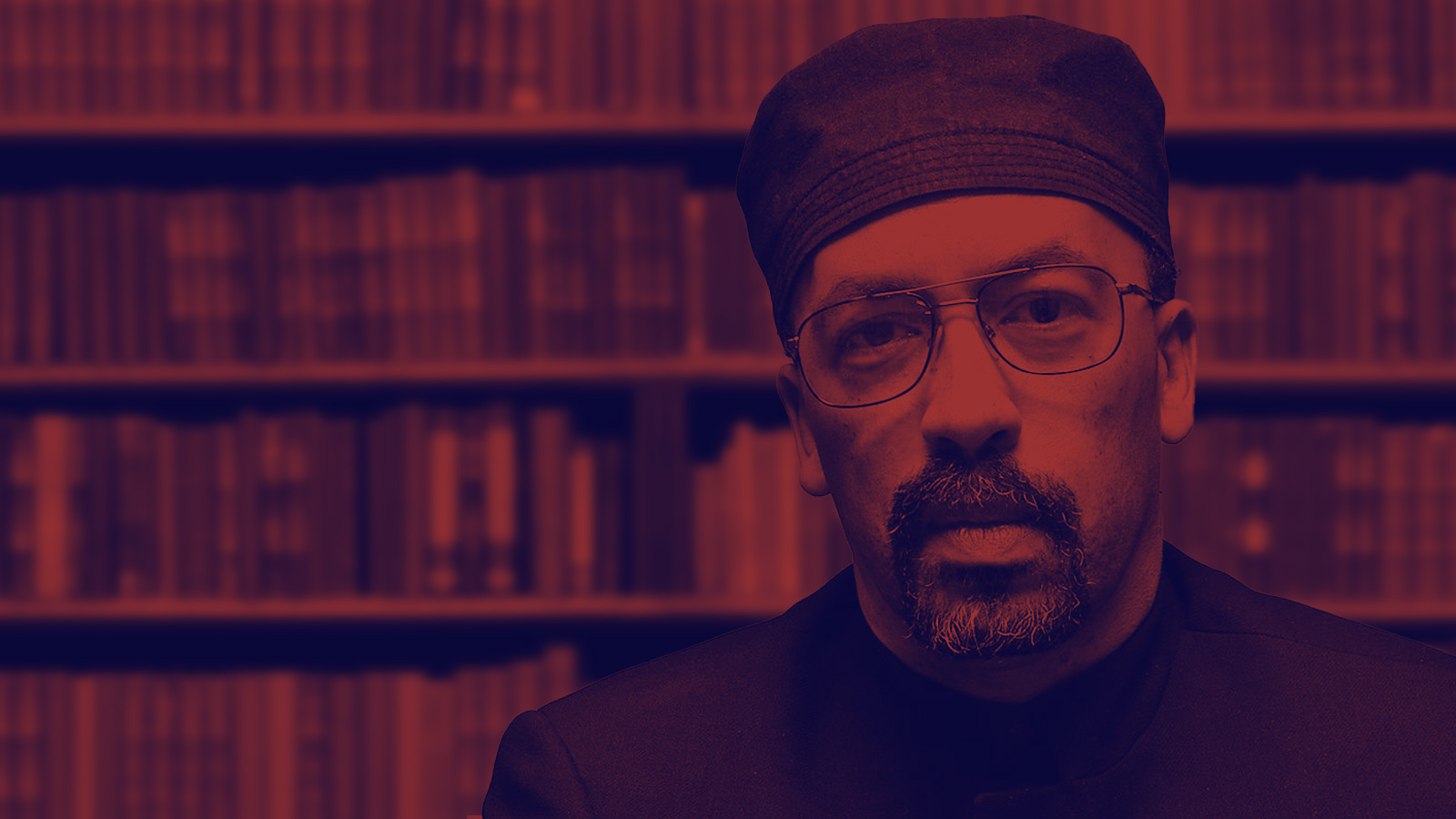Walking into the Baltimore, Maryland Convention Center on April 22nd, I was uncertain as to what expect. The much publicized and fifth “State of the Black World Conference” had been underway for two days. Sponsored by the Institute of the Black World-21st Century, a multi-purpose organizing, advocacy and educational organization formed under the leadership of long-time African American activist Dr. Ron Daniels, the conference attracted hundreds of participants from across the country. Though I was attending primarily to conduct interviews, I was particularly interested in a panel discussion to be held at noon: “Crisis in Haiti: What can we do?”
Chaired by Jocelyn McCalla (from JMC Strategies and also the executive director of the National Coalition for Haitian Rights), the panel included Leslie Voltaire (former Haitian Minister of Haitians Living Abroad), Jacques Ted St-Dic (spokes person for the Montana Accord), and Dr. Jean-Philippe Austin (chairman of Haitian-American Foundation for Democracy). The room was packed with at least fifty conference participants representing various organizations and constituencies, all interested in understanding the events unfolding in the first Black republic in the Americas.

April 22, 2023 SOBWC-V Crisis in Haiti session. L-R: Dr. Jean-Philippe Austin, Leslie Voltaire, Jacques Ted St-Dic and Jocelyn McCalla. (Photo by Tony Williams)
To a great extent, most people were familiar with the outlines of the tragedy underway in Haiti. Since the assassination of President Jovenel Moise, in an apparent coup attempt in 2021, followed by the assumption of leadership by the imperious Prime Minister Ariel Henry, Haiti has been unraveling. There is nothing approaching a democratic, legitimate government in existence. Further, gangs have multiplied which, according to former Minister Voltaire, were unleashed by sectors of the Haitian ruling elite as a means of violently repressing a significant mass movement of Haitian people organized against widespread corruption. In places such as Haiti’s capital, Port-au-Prince, the gangs, according to Jacques Ted St-Dic, are allegedly in control of 80-90% of the metropolitan area. They are also spreading to other cities.
What was surprising to hear, at least for non-Haitians and non-Haitian Americans, was information relative to something entitled the Montana Accord. Named for a hotel in Port-au-Prince where the bulk of the negotiations unfolded, the Accord is a remarkable document signed on to by around one thousand civil society and political organizations within Haiti, committing to and advocating for a transitional process leading to the formation of a legitimate and democratic Haitian government. Though not a provisional government, the Montana Accord signatories are attempting to organize what appears to be a broad consensus within Haitian society against the current atmosphere of authoritarianism, corruption and violence that plagues the country. Quite evident in the Accord is an insistence on the reestablishment of Haitian sovereignty.
The historical context for this Accord is worth remembering. The Haitian Revolution (1791-1804) was the first successful slave revolt in the Western Hemisphere, followed by the establishment of a republic free of slavery. Haiti went on to render direct assistance to the national independence struggles in South America led by iconic figures such as Simon Bolivar. As a result of the Haitian Revolution being a Black revolution of former slaves, plus the internationalism of the new Haitian government in taking on colonialism, Haiti was, for all intents and purposes, blockaded by the USA and Western Europe. In fact, the French returned in 1826 demanding that the Haitian pay “reparations” for the fact of the liberation of the slaves and the losses ‘suffered’ by the slave owners. Haiti paid such reparations—amounting to $115 billion in today’s dollars—until 1947, the money never having been returned to Haiti.
Haiti suffered from isolation by the USA until the 1860s, and then repeated US direct interventions in Haiti, including an occupation from 1915 – 1934. The US occupiers promoted a “racial” separation within the population and the building of a corrupt elite that, over the course of the 20th century, dominated Haiti through dictatorships and helped to make it the poorest country in the Western Hemisphere. Nearly every effort at exercising national self-determination has been undermined by the USA and at times, other countries such as Canada and France (both playing an ignominious role in the 2004 coup against democratically elected president Jean-Bertrand Aristide).
With this history as background, the April 22nd discussion focused on two main issues: one, how can the signatories of the Accord better coalesce in order to succeed, and two, what steps need to be taken in the USA by supporters of Haitian sovereignty and the Accord in order to influence US policy towards the first Black Republic.
For a US audience the second question was key. In that regard the panelists discussed efforts that have been undertaken. Dr. Austin, for instance, mentioned meetings that have been held with President Biden, including a common recognition that US troops must not be deployed on the ground. Dr. Daniels, speaking from the floor, mentioned efforts that have been undertaken to enlist members of the Congressional Black Caucus to weigh in on a change in US policy favorable to the Accord.
Altering US policy will be a major challenge. It is not only that there has been a long history of US direct interventions. President Bill Clinton, in restoring President Aristide to power in the 1990s, placed restrictions on the actions that Aristide could take upon resumption of office. In the aftermath of the horrendous Haitian earthquake of 2010, then Secretary Hillary Clinton and her husband, the former President, were foremost proponents of what can only be described as the defunding of the Haitian government in favor of funding non-governmental organizations and private interventions in response to the catastrophe.
Yet there are deeper problems. Within the non-Haitian segment of Black America, there is an ambivalence towards Haiti, an ambivalence that undermines the efforts to build a US-based mass constituency to fight on behalf of Haiti. The ambivalence was felt in the response to TransAfrica Forum founding President, the late Randall Robinson, undertaking a hunger strike in connection with the overthrow of Haitian President Aristide. Though a noble and courageous act, the hunger strike did not spark a mass movement, contrary to the efforts that he had successfully undertaken ten years previously with the sit-ins he led against apartheid South Africa.
Oddly, “historical Haiti” is something celebrated within Black America. Varying degrees of knowledge and celebration of the Haitian Revolution exist in tandem with mixed feelings—and understandings—as to how Haiti has ended up in such terrible conditions. Thus, a major component of the April 22nd discussion revolved around how to reshape the ‘narrative’ in connection with Haiti and, as a result, how to build a mass constituency in the USA that embraces Haiti as its own.
It was there, at 4pm on the 22nd, that the discussion ended. For the reader, it may appear that the discussion ended prematurely. For the participant, on the contrary, the end of the meeting was only the end of part 1 of what will need to be an exploration of the vision, strategy, and tactics of the pro-Montana Accord movement to come.















